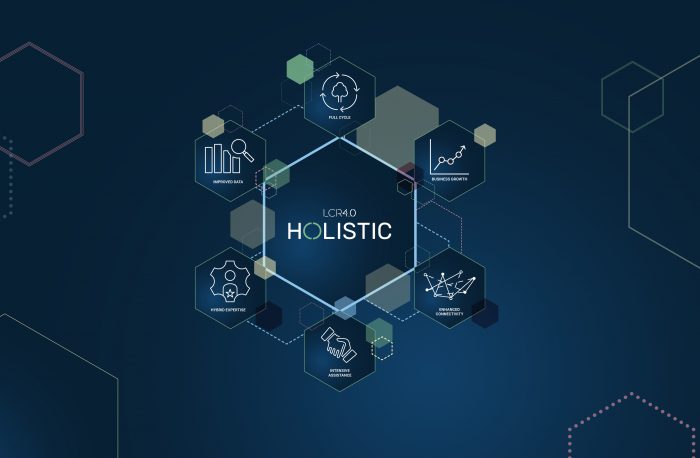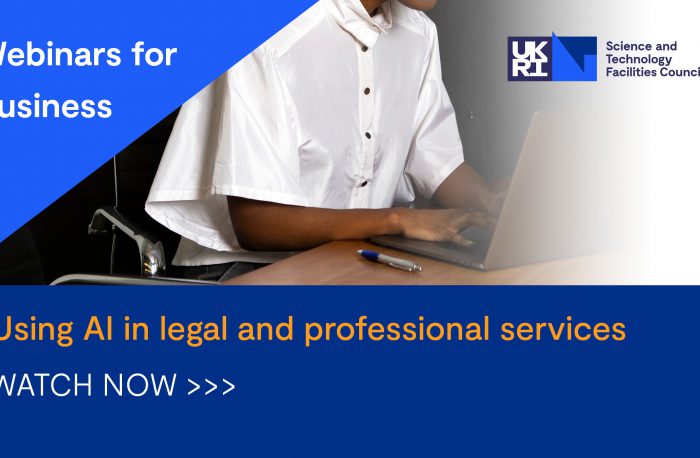Blog: 5 Digital Trends for 2023

As we enter another year, the VEC looks ahead at our digital technology predictions for 2023. From metaverses and avatars to electric vehicles, here is a list of what we think will be making headlines…
NET POSITIVE
Net Zero Carbon means our total greenhouse gas (GHG) emissions would be equal to, or less than the emissions removed from the environment. In 2019, the Metro Mayor of the Liverpool City Region, Steve Rotheram, set an ambitious target to reach Net Zero Carbon by 2040 or sooner, which is just the start of dramatic changes seen everywhere.
Building on the research of our universities, start-ups and the private sectors are developing improved products to drive the transition to Net Zero Carbon.
An example of this is the introduction of electric and hybrid vehicles. In December 2022, there were 42,284 new registrations of battery-electric cars, increasing the market share of battery-electric vehicles to 32.9% of all new car registrations. Under current Government plans, all new cars will have to be electrified from 2030, but sales of such models are already booming and we are already starting to see electric charging points popping up everywhere to support the growing use of these vehicles.
Within manufacturing new industrial processes and innovation in the chemical sector and bioengineering are reducing energy demands and harmful emissions and by-products. Renewable technologies are supporting this agenda through wind turbines. At the start of 2023, the UK was home to 11,000 wind turbines, making us the 6th largest capacity of any country.
Similarly, Net Positivity is encouraging businesses to not only reduce their carbon usage, but encouraging them to give back to society, the environment, and the global economy, providing a positive input for a sustainable and inclusive world. Ethical business practices and focus supporting and providing for local communities is an ethos deeply rooted in many of the SMEs we work with in the North West.
While the Metaverse has been championed by large companies, the VEC has worked throughout 2022 to help our regions SMEs, St George’s Hall, and Culture Liverpool to realise the potential of a social enterprise dimension to the Metaverse through Digital Heritage. Digital Heritage focuses on utilising an array of innovative digital tools and technologies for the preservation and promotion of historic assets for future generations. This will generate a sustainable ecosystem for driving resilience and recovery for the Liverpool City Region.
The VEC used scanning technology to capture thousands of images of the beautiful Minton tiled flooring within the majestic Great Hall, creating a digital copy of 1mm accuracy. The Industrial Digitalisation teams also used light hand-held scanning equipment for capturing multiple unique images of statues, building a 360-degree view of the John Weightman bust, one of the original architects of the Grade II listed building.
Real Deep Tech
Deep Tech refers to ‘start-ups whose business model is based on high tech innovation rooted in leading engineering and scientific research advances.’ Technologies which can often fall under this category include MedTech, Advanced Materials and Autonomous Systems. Driven and underpinned by advances in machine learning, robotics, and biotechnology.
In response to the pandemic, the University of Liverpool conducted a survey including 200 interviews for SMEs and local businesses in September 2020. The results found that 76% of businesses had adopted new digital technology and 39% recognised that their old business model would not work post-COVID. This highlighted the significant uptake in technology across multiple businesses of a variety of sectors and sizes. Established business are realising that opportunities exist from the disruption that Deep Tech will bring and embracing innovation.
Businesses are adopting these technologies at a fast pace to develop smarter products and services, for their own processes, and their customers. Our research found that 43% of businesses have embraced the Internet of Things (IoT sensors) and other similar devices with a further 12% already using Artificial Intelligence (AI). Healthcare, finance, manufacturing, transportation, and retail are just some of the sectors and industries that are adopting these technologies at a faster pace as they realise the benefits and enhanced efficiencies through automating tasks, gaining better insight into customer behaviour and optimising supply chain processes.
For the full report, please click here.
Autonomy
According to McKinsey, manufacturing is one of the leading industries for automation usage, with greater than 64% of global manufacturing activities considered to be automatable. Factories are filling up with automated systems which support data collection from an array of devices which can harmoniously work throughout evenings and weekends to deliver even more efficiently than before.
The news consistently highlights automated systems within our everyday lives including driverless cars despite stubborn resistance based on a lack of trust in these systems. More recently, there are now easily available systems to help you develop and create articles such as homework using AI technology for recognising key words and phrases. However, the same technologies can also highlight and identify acts of plagiarism before you think about using it for your next piece of coursework!
Data Science also plays a huge role in autonomy and how businesses are using this technology in-house for data assessment and analysis including marketing efforts. Data science and AI can be matched to not only pick up regular key words which are commonly used across different sectors and platforms such as Twitter, but ultimately this can help to quickly identify marketing and customer trends. Identifying these trends can not only highlight to a business what their customers want but give real and honest insight into opinions and what goes on behind the customer decision-making process. Using this can give businesses a better understanding of what their customers really want with fast-changing needs and expectations as we enter an ever more digital world, and improve not only their customer relationships but the service in which they provide.
Drones are a key example of how automated systems are being used for good, as they are regularly used for inspections of dangerous or hard-to-reach locations such as remote buildings, construction sites, oil rigs, and wind turbine maintenance. Other uses include using thermal imagery for search and rescue operations and even city and event planning with the use of ariel photography for identifying routes and safety measures.
The Digital Innovation Facility is home to an Extreme Environment Laboratory, a purpose-built multi-storey indoor facility dedicated to the design, manufacture, analysis, and testing of both aerial and land-based drones. DIF can replicate the harsh environments and operating conditions needed to validate the industrial application of unmanned aerial vehicles (UAVs).

Metaverse
According to the Dictionary, a Metaverse is a virtual-reality space in which users can interact with a computer-generated environment and other users. Non-fungible tokens (NFT) have demonstrated a growth in popularity with over 100 million NFTs sold in 2022, just less than double compared to the previous year. NFTs have allowed us to purchase non-tangible artefacts, clothing, and gaming elements whilst attending virtual events within virtual worlds (Metaverse).
A metaverse can be utilised by thousands of people simultaneously. More and more communities are finding the benefits to creating and joining popular metaverses for online socialising, gaming and education – allowing users access to remote classrooms, for students to gain greater accessibility to an education, regardless of location.
There are a huge number of opportunities that a Metaverse can provide for a magnitude of industries and sectors beyond education and entertainment. A Metaverse can be created and used in a similar way to a digital twin, becoming a digital clone of a physical environment where scenarios can be tested to support planning and learning.
For example, if a large-scale event is to be hosted within a specific building or venue, the Metaverse can be used to identify security points for assessing the ease of managing a high footfall across popular areas of the venue. These points could include the locations of fire alarm doors, emergency routes and accessibility. This technology can be expanded to cities for much wider research and planning such as traffic and policing for improving the safety of thousands of people within busy and popular areas, ahead of an anticipated event scenario.
The VEC has been working with SMEs in the North West to accelerate the development of Meta technologies.

Avatars
It has been twelve years since the release of the award-winning Hollywood blockbuster, Avatar, where the term became extremely popular and widely understood. The film plot shows audiences an avatar protagonist discovering new ways of extracting unique energy from a far-away world, whilst integrating with the local community and assembling innovative research.
Since then, and more recently, avatars are being dropped into metaverses for social meet-ups and exploration of digital worlds. Other uses being explored include immersive learning and training where avatars can be used as patients, allowing digital humans to hold several conditions to improve learning accessibility, particularly within the healthcare industry.
The VEC has recently developed several avatars through a realistic simulation which enables Orthoptic students within the University of Liverpool to gain access to a range of eye conditions, which they may not have been exposed to during their studies, despite hands-on work experience and placements. This visualisation tool enables students to use haptic technology based on typical orthoptic tools that are used to support the identification of illnesses and then form the treatment plan.
Read the full case study here.
Click here the downloadable blog.
Explore more

UK Heritage leaders unite to adopt Deep Tech as a driver for levelling up through digital heritage
On the 14th June 2022 the Virtual Engineering Centre launched our partnership and unique strategic…

LCR4.0 Holistic supports over 50% more start-ups as a catalyst for Business Growth and Innovation
Since launching in the summer of 2020, LCR4.0 Holistic has been making great strides in…

Panel Discussion | Using AI in Legal and Professional Services
On 21st January 2021, the STFC Hartree Centre talked to guest panellists from the legal…